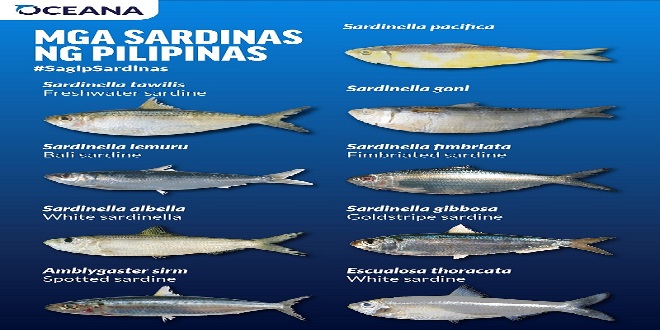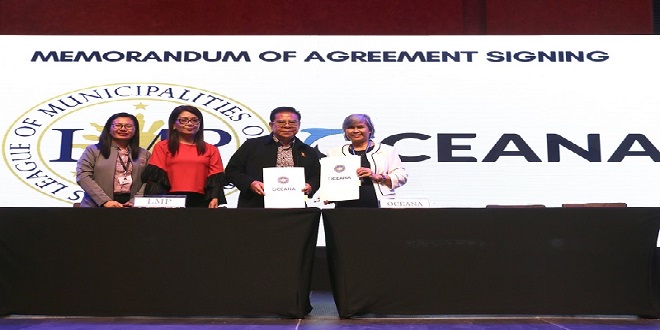
In times of crisis, sardines are a staple in relief packs. To those who are not allowed to go out because of the enhanced community quarantine, sardines have become a staple in the pantry, whether canned, bottled, or smoked and dried.
In the survey by the Social Weather Stations together with Oceana in 2017, 70 percent of Filipinos eat fish or any seafood for five days in a month; three out of ten (30%) Filipino adults nationwide ate sardinas/silinyasi/tunsoy each month.
The sardine industry is also an important economic driver providing jobs and livelihood, for small-scale entrepreneurs in the dried and smoked sector, and for factory workers in the canning and bottling sectors.
The sardine industry is also an important economic driver providing jobs and livelihood, for small-scale entrepreneurs in the dried and smoked sector, and for factory workers in the canning and bottling sectors.
An international non-government organization, Oceana, honors sardines with the attention it deserves, dedicating one of its campaigns to sardines protection. The advocacy organization calls on the Department of Agriculture and the Bureau of Fisheries and Aquatic Resources to promulgate the long-overdue National Sardines Management Plan.

“Fisheries Management Plans are an excellent way to organize the existing biological, economic, and social information about sardines.
Given the goals and objectives, the Fisheries Management Plan (FMP) for sardines allows for the creation of a framework for monitoring and evaluation of its progress for the sardine fisheries managers and users to have information for timely decisions to be made.
It is one of the victims of overfishing caused by the lack of a science-based, cohesive, sustainable management of sardines fisheries,” said Ramos.
“The approval of the National Sardines Management Plan is not only imperative for the sectors dependent on this industry for their economic interests. With the COVID19 pandemic, we saw again how important this is for our food security and health. Without sustainable management in place for this very important fish, our children may not be able to experience and even know that there is this nutrients- packed favorite food of our generation,” said Ramos.
Oceana is an international advocacy organization dedicated to protecting the world’s oceans. Since 2014, Oceana has been working closely with national and local government agencies, civil society, fisherfolk, and other stakeholders to restore the abundance of Philippine fisheries and marine resources.








